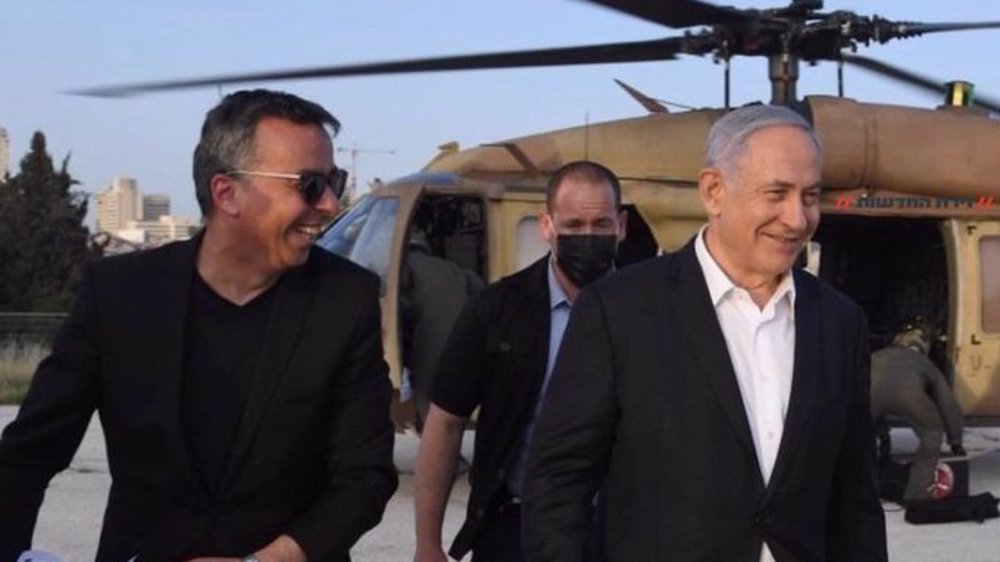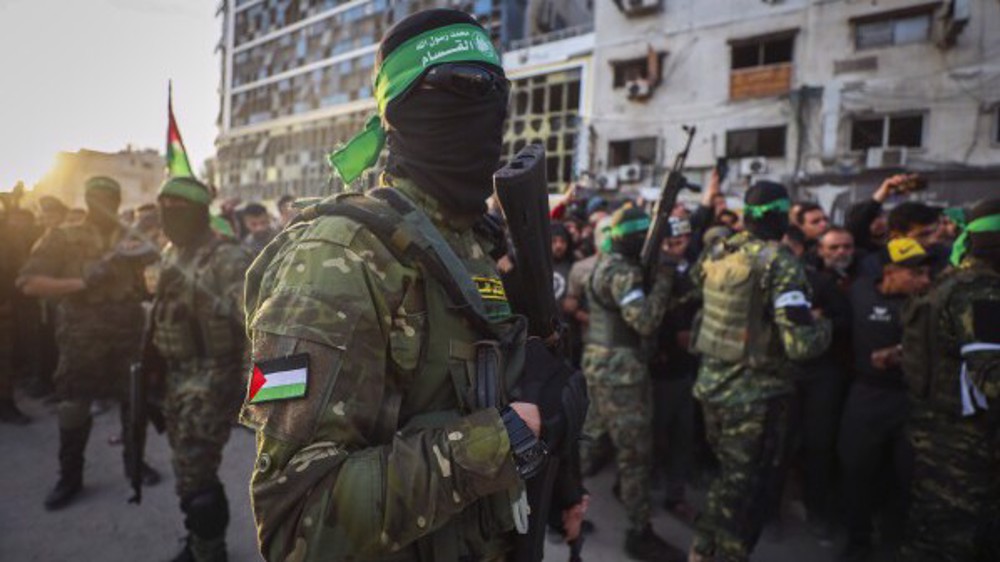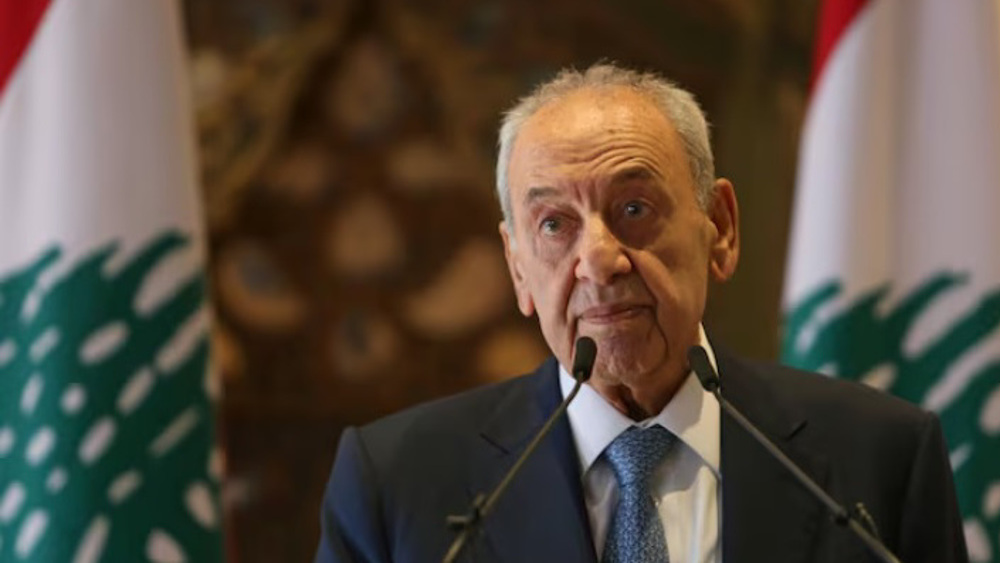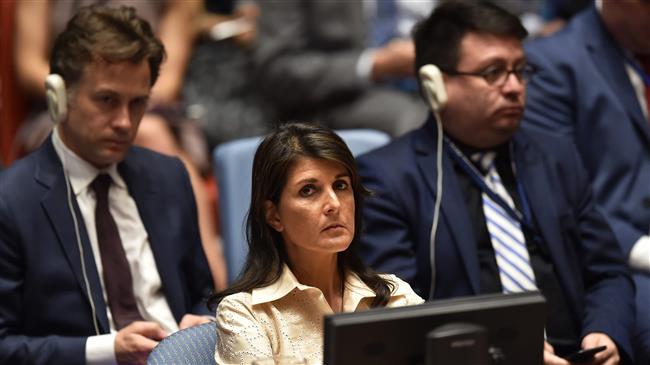Video: Harvard law school students stage walkout during Israel envoy talk
At least one hundred students have staged a walkout during an event at the Harvard Law School, where the consul general of Israel in New York, Dani Dayan, was scheduled to speak.
Just as Dayan was about to begin his address on Israeli settlements in occupied Palestine on Wednesday, students who had filled the auditorium stood up, lifted placards reading “Settlements are a war crime” and walked out in silence.
Dayan was heard muttering “I remember doing this in kindergarten” while the auditorium emptied. He was then left to deliver his speech to a mostly empty venue.
A video of the walkout went viral on the internet, and words of encouragement came pouring in for taking a stand and leaving Dayan shocked.
“To have 100 people standing up all at once and [leave] silently, did leave an impact,” Samer Hjouj, one of the organizers of the protest, told the Middle East Eye (MEE) news portal.
“As soon as we found out about the event, we planned and it took a lot of time but we had a team at every school in Harvard, finding people to help us make it happen.”
Rami Younis, a fellow at the Harvard Divinity School who also helped arrange the silent walkout, said given that the Israeli consul general was "someone whose entire life had revolved around dispossession and theft", he “should be tried in an international court and not brought to speak in front of a ‘liberal’ audience”.
Amaya Arregi, a student at the Fletcher School who also took part in the walkout, argued that even if academic freedom was paramount, she wondered how the Law School could justify “inviting an Israeli politician to talk about how they go about violating international law”.
However, the organizers of the event have told MEE that while it was perfectly appropriate for students to express disagreement and disapproval in this way, they had no regrets over hosting the event, suggesting that this was a matter of tolerating diverse academic views.
MEE said it seems that Israeli officials are going to face empty lecture hall seats more often and they should eventually speak to empty venues.
Hamzah Raza, a graduate student at the Harvard Divinity School who participated in the walk-out, said the successful action on Wednesday signaled to Dayan that more and more young people in the US were growing supportive of Palestinian human rights.
“The fact that virtually the entire room walked out on him says something. People who continue to take such positions will find themselves speaking to more, and more, empty rooms,” he said.
This is not the first time that the invitation of Israeli officials, or pro-Israeli figures, to events at universities has been condemned by students and activists.
In May last year, a number of protesters interrupted the former pro-Israel US Ambassador to the United Nations Nikki Haley’s speech at the University of Houston, accusing her of having Palestinian blood on her hands and of signing off on genocide in her support for the Zionist regime.
Israel is expanding its illegal settlements in the occupied Palestinian territories despite condemnation from the international community.
This comes at the cost of Palestinian homes, villages and entire neighborhoods being either evacuated and occupied or destroyed and replaced, leaving their legal owners destitute.
In July, Israeli forces destroyed homes on the outskirts of the occupied East Jerusalem al-Quds despite international condemnation and mass protests.
The Israeli rights group B’Tselem said in a report in May that Israeli authorities had forced nearly 3,000 Palestinians from their homes in Jerusalem al-Quds in the past 15 years.
More than 600,000 Israelis live in over 230 settlements built since the 1967 Israeli occupation of the Palestinian territories in the West Bank and East Jerusalem al-Quds.
The UN Security Council has condemned Israel’s settlement activities in the occupied territories in several resolutions.
Palestinians want the West Bank as part of a future independent Palestinian state, with East Jerusalem al-Quds as its capital.
The last round of Israeli-Palestinian talks collapsed in 2014. Among the major sticking points in those negotiations was Israel’s continued settlement expansion on Palestinian territories.
‘Get the files out’: Hillary Clinton slams Trump for Epstein files ‘cover-up’
Netanyahu’s former chief of staff dies suddenly at 58
Discover Iran: How once-isolated Makran coast is rising as Indian Ocean’s next strategic powerhouse
Hamas says it has not received deadline for disarmament as Israel threatens to reignite war
Switzerland weighs European option as Patriot delivery stalls
VIDEO | Press TV's news headlines
VIDEO | Another Gaza medic dies in Israeli custody
VIDEO | Hezbollah says prepared to defend Lebanon, does not seek war











 This makes it easy to access the Press TV website
This makes it easy to access the Press TV website